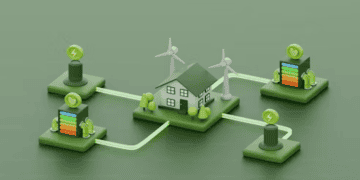The global shift towards cleaner energy technologies offers Africa a unique opportunity to enhance its development and economic prosperity, although it is important to recognize and manage potential risks. As the world aims to reduce reliance on fossil fuels and mitigate climate change, the International Energy Agency estimates that two-thirds of the $3 trillion projected investments in energy for 2024 will be allocated to clean technologies. The growing adoption of hybrid and electric vehicles, renewable energy, and other sustainable solutions is expected to accelerate in the coming years.
Africa has the potential to capitalize on this transition by leveraging its vast natural resources to become a key player in global clean energy supply chains. This move could boost the continent’s mining and manufacturing sectors, increase export revenues, and address energy poverty in Africa. Three primary opportunities exist for Africa in relation to the global energy transition. First, the continent can position itself as a major supplier of essential minerals such as copper, rare earth elements, lithium, and graphite, as well as higher-value products like fuel cells, batteries, and electric vehicles.
Second, there is a growing demand for ‘green’ alternatives to products with high carbon footprints. For instance, the market for low-carbon steel, produced using hydrogen and renewable energy sources, is anticipated to rise as companies seek to decarbonize their supply chains. Third, Africa can export its expertise in clean technologies. The continent has already established itself as an innovator in mobile telecommunications and fintech, and similar advancements are being made in cleantech, including pay-as-you-go solar systems and energy-efficient stoves that reduce consumption and save households money.
The advancements in renewable energy over the past decade provide Africa with the opportunity to harness its abundant wind and solar resources, ensuring that all communities gain access to affordable electricity. Solar mini-grids are already playing a crucial role in alleviating energy poverty, particularly in rural areas, while larger projects contribute low-cost power to national grids.
However, the energy transition also presents risks that must be addressed through careful planning. An abrupt shift to clean energy could exacerbate inequalities and social tensions, which Africa cannot afford. Therefore, fostering effective and sustainable partnerships among governments, private companies, civil society groups, and local communities is essential.
Renewable energy developers and their financial partners should establish meaningful partnerships with the communities they serve, aiming to create a lasting legacy. Financial service providers must also ensure that small businesses can access low-cost clean energy to enhance their competitiveness. Sharing information about the benefits of renewable energy and offering tailored financing options to small and medium enterprises (SMEs) will be crucial.
Additionally, all stakeholders need to collaborate to protect the livelihoods of communities that currently rely on non-renewable energy sources. Neglecting this aspect could worsen inequalities and provoke resistance to the transition. However, addressing these risks through inclusive planning processes should not overshadow the significant opportunities available.
Africa has a history of technological leapfrogging, and the energy transition allows for the possibility of transitioning directly to decentralized, flexible, and modern power systems while also capitalizing on the growing global demand for green products and services.
The true measure of success will be whether sustainable development principles are integrated into local communities rather than remaining confined to corporate and governmental discussions. The private sector plays a vital role in fostering these conversations within communities, while regulators and policymakers must create supportive frameworks to ensure equitable distribution of benefits, ensuring that no one is left behind.
Stay updated with supply chain logistics news on The Supply Chain Report. Free international trade tools are available at ADAMftd.com.
#EnergyTransition #SustainableDevelopment #CleanEnergy #AfricaInnovation #GreenEconomy















